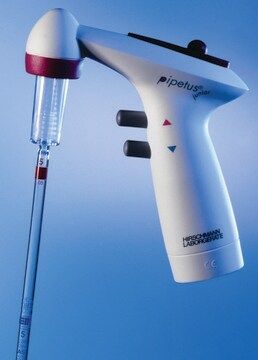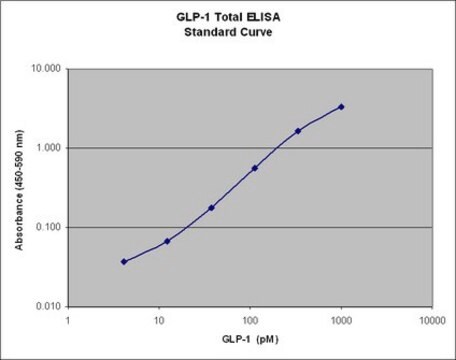APOMAG-62K
MILLIPLEX® Human Apolipoprotein Magnetic Bead Panel - Cardiovascular Disease Multiplex Assay
This Bead-Based Multiplex Assay, using the Luminex® xMAP® technology, enables the simultaneous analysis of Apo AI, Apo AII, Apo B, Apo CII, Apo CIII, Apo E.
Synonym(s):
human apolipoprotein CVD immunoassay panel, luminex human apolipoprotein cardiovascular disease multiplex assay, millipore human apolipoprotein CVD multiplex kit
About This Item
Recommended Products
feature
This Bead-Based Multiplex Assay, using the Luminex® xMAP® technology, enables the simultaneous analysis of Apo AI, Apo AII, Apo B, Apo CII, Apo CIII, Apo E.
Quality Level
species reactivity
human
manufacturer/tradename
Milliplex®
assay range
accuracy: 85%
(Apo E)
accuracy: 86%
(Apo AI)
accuracy: 89%
(Apo CIII)
accuracy: 92%
(Apo B)
sensitivity: 1.00 ng/mL
(Apo AII)
sensitivity: 1.22 ng/mL
(Apo CII)
sensitivity: 1.42 ng/mL
(Apo E)
sensitivity: 1.48 ng/mL
(Apo AI)
sensitivity: 1.71 ng/mL
(Apo CIII)
sensitivity: 4.84 ng/mL
(Apo B)
technique(s)
multiplexing: suitable
detection method
fluorometric (Luminex xMAP)
shipped in
wet ice
General description
MILLIPLEX® Human Apolipoprotein Panel is a 6-plex kit to be used for the simultaneous quantification of any or all of the following analytes in serum, plasma, tissue culture supernatant or other biological samples: APOA-1, APOA-2, APOB, APOC-2, APOC-3, and APOE. This kit uses a 96-well format, contains a lyophilized standard cocktail, two internal assay quality controls and can measure up to 38 samples in duplicate.
The Luminex® xMAP® platform uses a magnetic bead immunoassay format for ideal speed and sensitivity to quantitate multiple analytes simultaneously, dramatically improving productivity while conserving valuable sample volume.
Panel Type: Cardiovascular
Specificity
To test cross-reactivity among the assays in the panel, individual apolipoprotein standard was prepared at a concentration 4 times greater than the highest concentration in the calibration curve and tested in the 6-plex assays with multiplexed beads containing immobilized capture antibodies and individual detection antibodies. There was negligible cross-reactivity within the panel.
Application
- Analytes: Apo AI, Apo AII, Apo B, Apo CII, Apo CIII, Apo E
- Recommended Sample Type: Human serum, plasma, tissue culture supernatant or other biological samples
- Recommended Sample Dilution: 10 μL of a 1: 4,000 dilution of plasma or serum
- Assay Run Time: Primary incubation of 1 hour followed by a secondary incubation of 30 minutes, both at room temperature (20-25°C)
- Research Subcategory: Cardiovascular Disease
Features and Benefits
Other Notes
Legal Information
Disclaimer
Signal Word
Danger
Hazard Statements
Precautionary Statements
Hazard Classifications
Acute Tox. 4 Dermal - Acute Tox. 4 Inhalation - Acute Tox. 4 Oral - Aquatic Chronic 2 - Eye Dam. 1 - Skin Sens. 1 - STOT RE 2
Target Organs
Respiratory Tract
Storage Class Code
10 - Combustible liquids
WGK
WGK 3
Certificates of Analysis (COA)
Search for Certificates of Analysis (COA) by entering the products Lot/Batch Number. Lot and Batch Numbers can be found on a product’s label following the words ‘Lot’ or ‘Batch’.
Already Own This Product?
Find documentation for the products that you have recently purchased in the Document Library.
Related Content
Multiplex immunoassays, such as MILLIPLEX® multiplex metabolic assays, are critical in metabolic syndrome research because they provide a full picture of the different conditions related to it, like diabetes and obesity, as well as save time and sample volume.
Our team of scientists has experience in all areas of research including Life Science, Material Science, Chemical Synthesis, Chromatography, Analytical and many others.
Contact Technical Service







